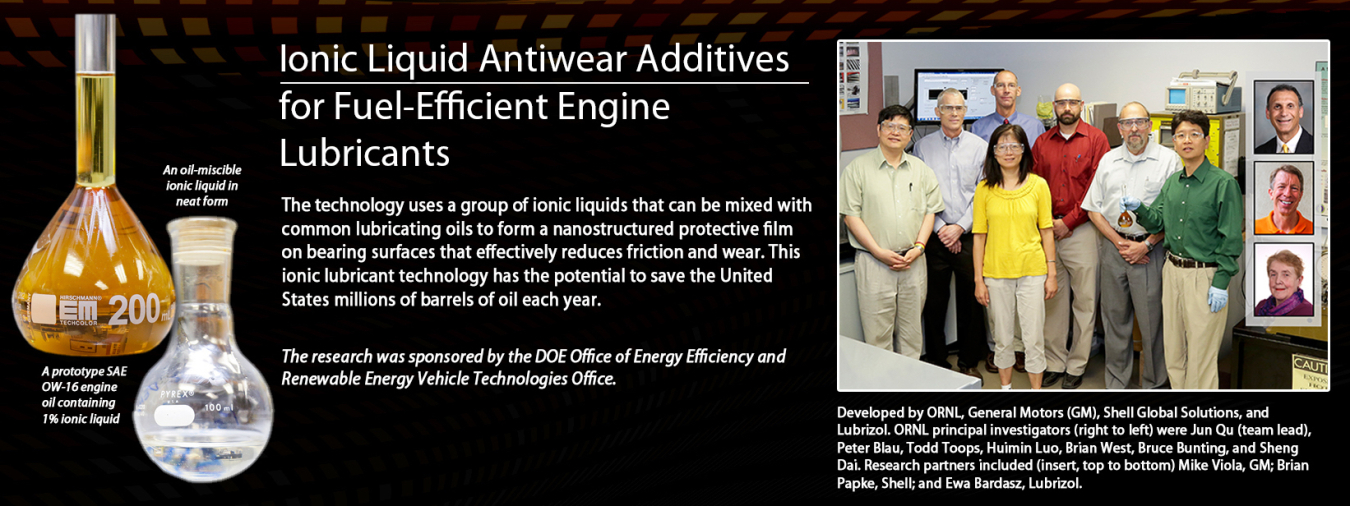EERE Success Story - Novel Engine Lubrication Anti-Wear Additives Demonstrate Improved Fuel Economy
Office of Energy Efficiency & Renewable Energy
March 14, 2016

Oak Ridge National Laboratory (ORNL) has been working with General Motors, Lubrizol, and Shell to develop new additives for lubricants that could boost fuel economy by 2% compared to commercially available synthetic oils. These ionic lubricant additives – organic salts that are liquids at ambient temperatures – may also be able to improve durability in addition to vehicle fuel economy. Once commercialized, this technology could be used immediately by drivers to improve fuel economy in their existing cars without needing to purchase a new vehicle.
In general, 10%-15% of the energy from a car’s internal combustion engine is lost to friction. Lubricants are critical in mitigating this drag and wear. One way manufacturers can increase fuel economy is by lowering oil viscosity, which reduces friction. However, if oil viscosity is too low, it can impair engine durability.
ORNL, with General Motors, Shell, and Lubrizol, is developing novel ionic liquids that may be able to resolve these issues. These additives mix well to form homogeneous solutions, are stable at high temperatures, are not corrosive, maintain contact well with solid surfaces, prevent wear, and offer effective friction reduction. Using these ionic liquids as additives to existing oils will help vehicle and parts manufacturers meet their own targets for lower engine oil viscosity and better wear protection.
So far, these ionic liquids are showing excellent results. In 2013, industry tests showed that the first prototype low-viscosity engine oil enhanced with these prototype ionic liquids increased fuel efficiency by 2%. This enhanced oil also ensured excellent wear protection for the engine and minimized the effects of aging on vehicle performance. More recently, researchers discovered positive synergistic effects between a group of ionic liquids and ZDDP, a traditional anti-wear additive. Last year, researchers tested a second prototype that combined the ionic liquids and anti-wear additive and confirmed this technology’s substantial potential to further improve fuel economy.
In 2014, ORNL’s ionic liquid lubrication technology won a R&D 100 award, one of the highest honors in the industry. This research also generated three intellectual patents and 15 high-impact journal publications.
Currently, the team is continuing work with General Motors to further develop these lubricants. By using the ionic liquids to lubricate the engine and the rear axle, they hope to achieve up to a 4% increase in the vehicle’s fuel economy. If successful, this remarkable technology could potentially save the United States tens of millions of barrels of oil annually.
The Vehicle Technologies Office (VTO) supports research, development (R&D), and deployment of efficient highway transportation technologies to improve vehicles’ fuel economy and minimize petroleum use. These technologies will increase Americans’ energy security, lower costs, and reduce environmental impacts

